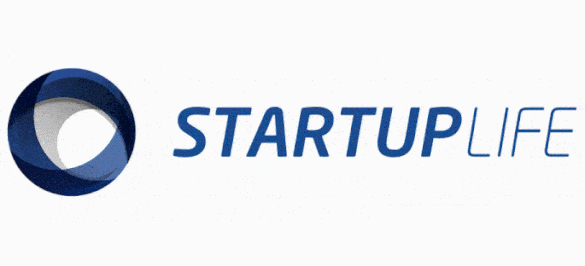In the realm of commercial transactions, security and transparency are crucial factors for the success of negotiations. This article aims to present the escrow account, addressing its detailed operation and highlighting its importance in mergers and acquisitions (M&A) operations. Through this analysis, we seek to clarify how this tool can mitigate risks and ensure that all conditions agreed upon between the parties are met, providing trust and protection in complex transactions.
Content:
- What is an escrow account?
- How does an escrow account work?
- What is the role of the neutral party and who should it be?
- What is the importance of the escrow account?
- Retention clauses and escrow account: What is the relationship?
- The importance of the escrow account in case of buyer indemnification
- Does the use of an escrow account require consensus from both parties?
What is an escrow account?
The escrow account, or “guarantee account”, is a bank account that will receive the value of the M&A operation, remaining blocked until the fulfillment of the conditions established in the Term Sheet (Letter of Intent) and/or in the SPA (Share Purchase Agreement). In other words, the value of the M&A operation can be deposited at the beginning of the process, as well as at the end, after the signing of the SPA, depending on the negotiation conditions established between the parties.
By the way, be sure to check out our YouTube video on the subject.
This is a security measure because, after defining the basic premises of the merger and/or acquisition, the due diligence stage begins – or the audit of the selling company, at which point the legal and accounting analysis of the company is carried out. With the completion of due diligence, it is possible that the value of the operation will be reduced or maintained upon compliance with certain conditions, such as, for example, the remediation of contingencies.
Therefore, the escrow account allows both sides of the negotiation to be assured with transparent and fair communication, so that there are no financial losses for either party. For the seller, it is the security that the amount has already been transferred, and for the buyer, it is the security that the amount will be transferred to the seller upon compliance with the established conditions.
How does an escrow account work?
Based on the considerations made above, it can be stated that an escrow account functions as a custody account administered by a neutral third party, usually a bank or a financial services company, which holds funds or assets on behalf of two parties involved in a transaction until all agreed-upon conditions are met. The following is an illustrative step-by-step process:
Account Opening: The parties involved in a transaction agree on the terms and instructions for the escrow account.
Deposit of Funds or Assets: The buyer deposits the funds or assets into the escrow account.
Conditions to be Met: The parties fulfill the conditions stipulated in the agreement, such as inspections, documentation, and necessary approvals.
Release of Funds or Assets: Upon confirmation of the fulfillment of the conditions, the third party releases the funds or assets to the seller.
Account Closure: The escrow account is closed after the transaction is completed and the funds are released.
This process offers security and trust to the parties, ensuring that the terms of the agreement are respected before the transaction is concluded.
What is the role of the neutral party and who should it be?
The role of the neutral party in the negotiation is to ensure the security of the value of the M&A operation deposited under their ownership and to comply with the conditions established in the Term Sheet and/or SPA, especially with the deadlines and triggers for payment of the value to the seller. However, it is important to emphasize that this third party needs to be constantly updated on the negotiations by both parties to avoid unnecessary delays.
The neutral party should be someone trusted by both parties, which is usually a financial institution. The main characteristic is that this person does not have any type of loss if something harms the deal.
What are the benefits of the escrow account?
The benefits of an escrow account in M&A operations are diverse. According to ewally, the parties involved in the negotiations can count on neutral elements that mediate the entire transaction, ensuring that those involved do not suffer financial losses if one of the parties fails to comply with the agreement. Dilettapay also clarifies that, due to the high risks in acquisitions and mergers of companies, escrow provides greater legal security, as there are pre-established agreements in the negotiation. In addition, the contract guarantees the buyer reimbursement for any losses resulting from inaccurate information provided by the seller.
For example, if the amount was deposited into the escrow account before the negotiation and reduced at the time of signing, the neutral party will return the portion of the amount to the buyer. If it is maintained upon compliance with the conditions established in the Purchase and Sale Agreement, it will be the responsibility of the neutral party to be informed of the completed steps to release the value of the M&A operation.
What is the importance of the escrow account? The escrow account is crucial in various commercial transactions due to its ability to provide security and trust between the parties involved, such as:
Risk Mitigation: Ensures that funds or assets are released only after all agreed-upon conditions are met.
Transparency: Ensures that both parties have a clear view of the steps necessary to complete the transaction.
Protection: Protects the interests of buyers and sellers, preventing fraud and ensuring the correct execution of the agreement.
Trust: Facilitates complex negotiations by offering a secure and neutral structure for the custody of funds.
These elements make the escrow account an indispensable tool in commercial transactions, especially in mergers and acquisitions (M&A).
Retention clauses and escrow account: What is the relationship?
Throughout this article, we have mentioned due diligence and the fulfillment of conditions established in the SPA for the release of funds. As we recently published in the article “Due diligence in M&A: how it works?”, the procedure provides the potential buyer with an assessment of the company’s conditions in various areas, such as, but not limited to, financial, accounting, tax, labor, technological, and legal areas. Its result can interfere with the terms of the definitive contracts of the operation, the valuation of the target company, the contingency of amounts, the term of the operation, and the conditions precedent to the signing of the SPA.
Having made the above introduction, retention clauses in an M&A operation are those that stipulate the seller’s need to fulfill certain requirements imposed by the buyer to gain access to a fraction of the operation’s value.
For example, if due diligence identifies that the seller has 30 service providers, the buyer may require, as a condition precedent to the release of a portion of the operation’s value, that the seller formalize these workers as employees under the CLT (Consolidation of Labor Laws).
This entire operation, as well as the release of funds, will be carried out through the escrow account, managed by the neutral party to the M&A operation.
The importance of the escrow account in case of buyer indemnification
If due diligence indicates risks in the selling company that may materialize after the execution of the final documents, it is very common to include indemnification clauses in the event of any of the anticipated scenarios, as the buying company will be assuming obligations that were not previously its responsibility.
In this sense, if a risk identified during the due diligence process materializes after the execution of the final documents, part of the amount that the buyer deposited into the escrow account for the purchase of the company may be returned to them as compensation.
For example, if the selling company has a federal tax debt of R$ 100,000 and guarantees to the buying company that it will pay it within 30 days of signing the definitive documents, the buying company may stipulate that, in case of non-compliance with the deadline or if, during this period, the Federal Government takes legal action against it, the buyer will be indemnified in the amount of R$ 200,000, deducted from the value of the M&A operation.
In other words, the escrow account is also important to simplify the company acquisition process, centralizing all necessary operations in one place.
By the way, it is worth noting that the indemnification clauses must be very well defined and proposed by the parties, and the participation of in-house legal counsel – if any, for the seller and/or buyer – is of great importance. Even if it is not the specialty and/or focus of the in-house legal team to carry out and finalize more complex operations, this department can communicate in the same language as the external legal counsel that the startup may eventually hire to help conduct the M&A process, and, on the other hand, can communicate in the same language with the lawyers and legal advisors on the other side of the deal.
Furthermore, it should be emphasized that in an M&A operation, it is essential for the entrepreneur to have a legal team by their side to advise them at each stage.
Does the use of an escrow account require consensus from both parties?
As can be noted throughout this article, the escrow account has several functionalities that go far beyond the simple deposit of the M&A operation’s value: it is of great importance for the conditions negotiated from the beginning of the operation to the post-signing period of the definitive instruments.
However, its use depends on an agreement between the seller and the buyer, that is, an agreement between the parties. Thus, the main disadvantage of using an escrow account is noted, as the search for consensus can be as time-consuming as the merger and acquisition process itself.
Furthermore, the parties must trust the impartiality and efficiency of the neutral party to the relationship that manages the escrow account, which creates a dependence on this person in the operation. Finally, it is always important to clarify that the escrow account has fees associated with its maintenance and the service of the account, which vary for each institution.
In any case, it is noted that there are possibilities for resolving conflicts involving the escrow account in M&A operations, which does not make the disadvantage outweigh the perceived benefits.
Therefore, we can say that the escrow account has numerous benefits in the M&A operation, mainly because it protects the interests of all parties involved through someone neutral and, at the same time, trustworthy.
The escrow account is a powerful tool in the operation, which can – and should – be used intelligently throughout the process, whether legally, accounting-wise, or negotiation-wise. Therefore, it is essential that the selling and buying companies have specialized M&A advisors for the best decision-making and, especially, for the most assertive use of the escrow account.
For further information regarding our services, get in touch:











